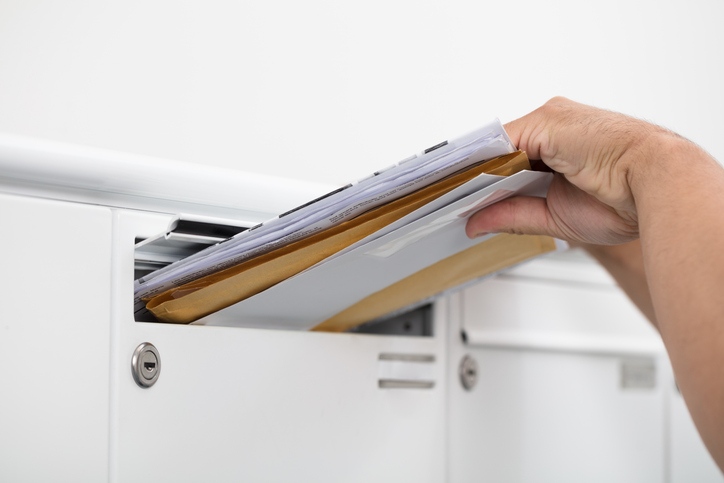Serving the Dallas Fort Worth Area & Nationwide

Why It’s Important to Keep Sensitive Documents Safe at Home
Sensitive documents are the cornerstone of personal identity, financial stability, and legal security. Items like passports, tax records, and will carry immense value, often serving as gateways to critical services and protections. In an increasingly digital age, where information breaches and identity theft are becoming more common, the need to keep sensitive documents safe at home has never been more critical. Carelessness with these documents can lead to devastating consequences, from financial losses to identity fraud.
Why Sensitive Documents Need to Be Protected
Sensitive documents encompass a variety of essential items, such as birth certificates, social security cards, financial statements, medical records, and legal documents like deeds and wills. These documents play a fundamental role in proving identity, managing personal finances, and navigating legal processes. Losing or mismanaging them can result in far-reaching implications.
Unauthorized access to these sensitive documents can lead to identity theft, enabling criminals to open fraudulent accounts, apply for loans, or make unauthorized purchases. Mishandled financial documents can expose bank accounts, causing victims mounting debts and legal issues. Legal documents like wills and deeds are equally at risk, with their loss potentially leading to contested claims or ownership disputes. Protecting sensitive documents is essential for safeguarding your rights, assets, and peace of mind.
The Top Risks of Improperly Storing Sensitive Documents
Failing to understand how to store sensitive documents can expose individuals to various risks, including:
- Identity Theft: Criminals often seek personal information, such as social security numbers or financial details, to impersonate individuals. With these details, they can create fake identities, access private accounts, and even commit crimes in the victim’s name.
- Financial Loss: Sensitive financial documents, such as credit card statements, bank statements, or tax records, are prime targets for criminals. Unauthorized withdrawals, fraudulent credit card charges, and loan approvals under your name can lead to significant financial losses and tarnished credit scores.
- Legal Challenges: The inability to produce vital documents can complicate court cases, property disputes, or insurance claims. Missing a crucial document at the wrong time can lead to expensive delays or negative outcomes.
- Natural Disasters: Fires, floods, and other natural disasters can destroy sensitive documents if they are not stored properly. Without a plan in place, homeowners may find themselves unable to access important records when they are most needed.
How to Safely Store Sensitive Documents at Home
Proper storage is essential to protect sensitive documents and ensure their longevity. Here are effective methods for storing them securely:
- Secure Storage Options: Investing in a fireproof and waterproof safe is one of the most reliable ways to protect sensitive documents at home. These safes provide a robust defense against natural disasters and theft. For less critical documents, locked filing cabinets or drawers can offer adequate protection.
- Categorize Documents: Organizing documents by category can help prioritize security. For instance, frequently used items like passports and medical records should be stored separately from long-term storage items like deeds and wills.
- Home Security Measures: Enhancing home security through measures like alarm systems or security cameras adds an extra layer of protection. Keeping sensitive documents in a secure location within a protected home environment ensures comprehensive safety.
Why Shredding Sensitive Documents Is Crucial
Improperly disposing of sensitive documents poses a significant risk of information theft. Simply throwing away bank statements, old bills, or medical records in the trash leaves them vulnerable to prying eyes. Shredding ensures that these documents are destroyed beyond recovery.
Benefits of Shredding
- Prevents unauthorized access to discarded information.
- Reduces clutter while safeguarding personal data.
- Protects against dumpster-diving criminals looking for exploitable details.
When choosing a shredder, consider cross-cut or micro-cut models for added security. Both options shred paper into small, unrecognizable pieces, making reconstruction nearly impossible.
Tips for Organizing Your Sensitive Documents
Keeping sensitive documents safe at home requires a well-organized system. A systematic approach ensures that you can access what you need when you need it, without compromising security.
- Create a System: Use folders, binders, or labeled envelopes to categorize documents into groups like personal, financial, legal, and medical to streamline accessibility and reduce the risk of misplacement.
- Regular Updates: Periodically review your sensitive documents to ensure they are current and relevant. Discard outdated items securely and update records as necessary.
- Labeling and Accessibility: Clearly label storage containers or folders to avoid confusion. However, avoid overly conspicuous labels that could attract attention to the documents’ sensitive nature.
- Backups: Maintain duplicates of critical documents in a separate location. This redundancy ensures access even if the originals are damaged or lost.
- Digital Alternatives for Sensitive Documents: In the modern world, digital storage offers a convenient and secure alternative for managing sensitive documents. However, proper precautions must be taken to protect digital files from cyber threats. Scan your physical documents and save them in a secure digital format. Use encrypted external drives, password protection, or reliable cloud storage solutions to store these files.
- Two-Factor Authentication: Enable two-factor authentication (2FA) on digital storage accounts. 2FA adds an extra layer of security, requiring both a password and a verification code delivered to a trusted personal device.
- Balance Between Physical and Digital: While digital copies reduce the risk of physical loss, it is wise to keep physical copies of essential documents, such as wills and deeds. Balancing physical and digital storage ensures comprehensive protection.
Keep Your Sensitive Information Safe with Secure On-Site Shredding
Knowing how to keep important documents safe at home is vital, but when it’s time to dispose of outdated or unnecessary records, trust Secure On-Site Shredding to handle the job securely and efficiently. Serving the DFW metroplex, we offer on-site shredding services designed to protect your information and prevent identity theft. With certifications from NAID and HIPAA compliance, our team ensures your sensitive materials are destroyed responsibly and in full accordance with regulations. Whether you’re clearing out old files or safeguarding your future, take the first step toward secure document management by contacting us today.





